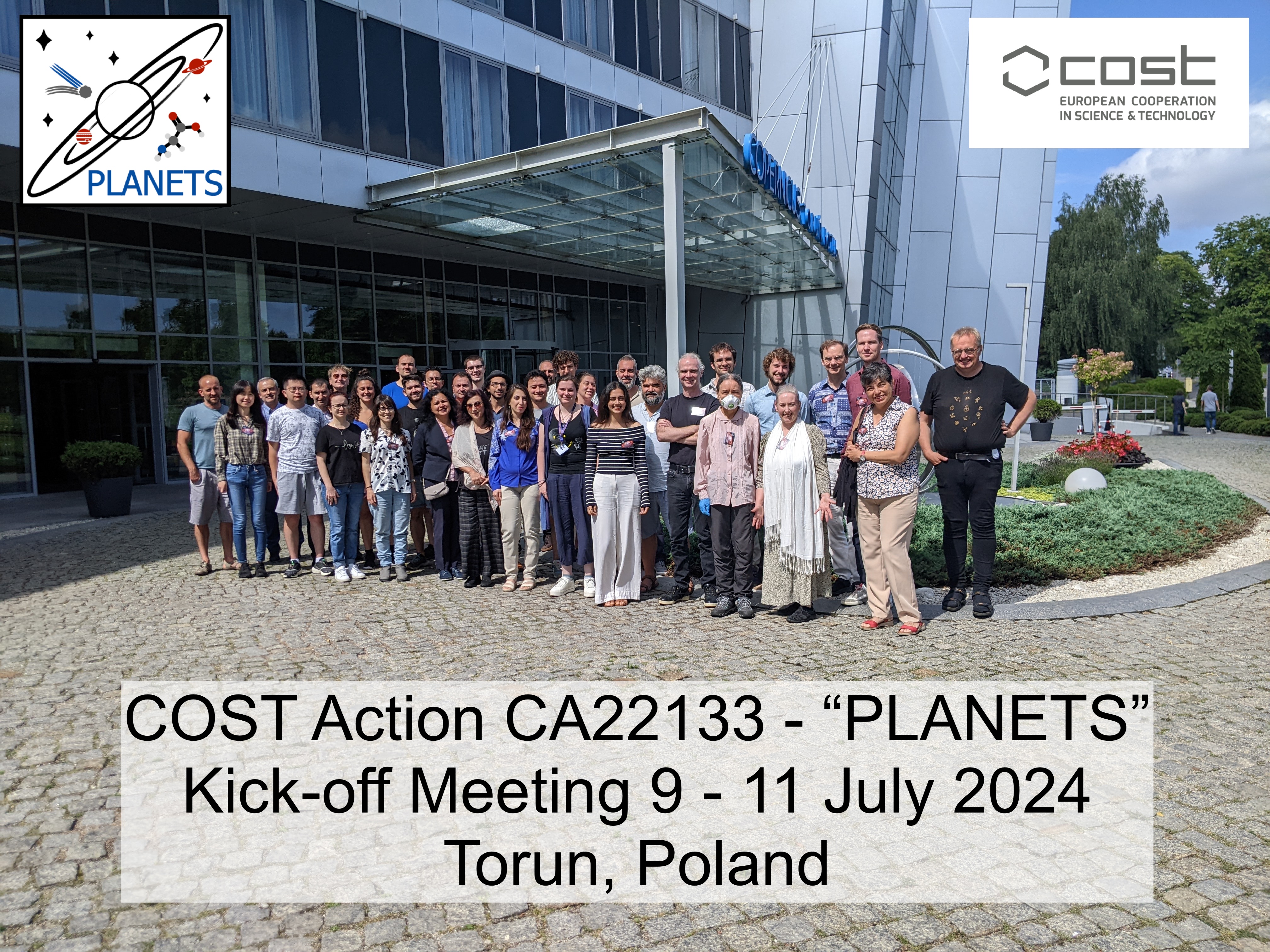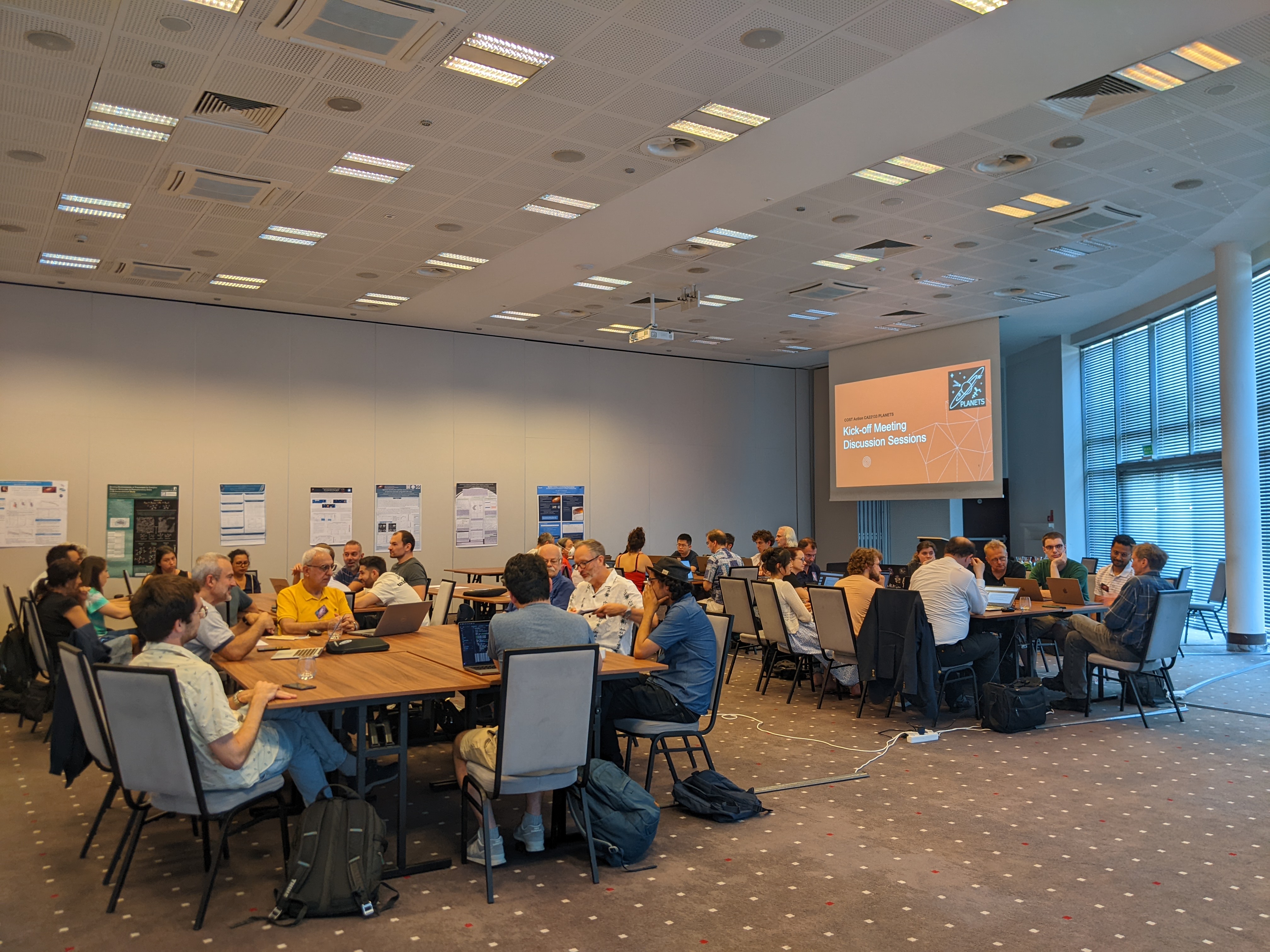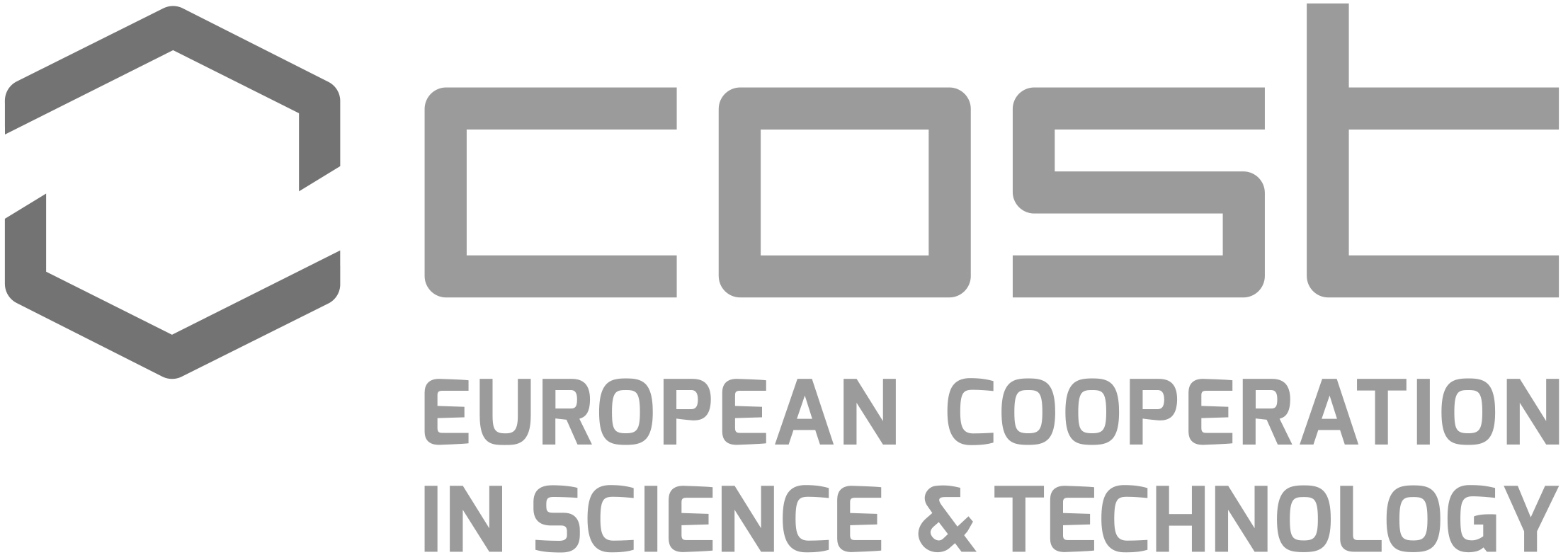
Presentations from the Action Kick-off Meeting held in Torun, Poland, July 2024
Review Talks
- Overview of the COST Action CA22133 PLANETS - Catherine Walsh (University of Leeds, UK)
- Overview talk on WG1 - Planet formation: laboratory perspectives - Nigel Mason (University of Kent, UK)
- Overview talk on WG2 - Advancing planet formation models - Joanna Drazkowska (Max Planck Institute for Solar System Research, Germany)
- Overview talk on WG3 - Imaging of solids for planet formation - Antonio Garufi (Arcetri Observatory, Italy)
- Overview talk on WG7 - Towards the first database on planet-forming disks - Miguel Vioque (European Southern Observatory, Germany)
Contributed Talks
- Can stellar abundances constrain the composition of rocky planets? - Vardan Adibekyan (University of Porto, Portugal)
- A warp-induced dust instability in PPDs - Hossam Aly (TU Delft, Netherlands)
- cuDUST: a massively paralleled tool for studying dust dynamics and evolution - Jiaqing Bi (University of Toronto, Canada)
- Databases for atomic and molecular data - VAMDC - Virtual Atomic and Molecular Data Center - Milan Dimitrijevic (Belgrade Astronomical Observatory, Serbia)
- Building blocks of life in atmospheres of planets-hosting stars - Arnas Drazdauskas (Vilnius University, Lithuania)
- The full census of disks in scattered light from Taurus, Chameleon, Orion - Antonio Garufi (Arcetri Observatory, Italy)
- Impact of magma-atomsphere coupling on sub-Neptune populations - Kaustubh Hakim (Royal Observatory of Belgium, Belgium)
- Aspects of cometary dust particles as deduced from in-situ experiments next to 67P/Churyumov=Gerasimenkov - Martin Hilchenbach (Max Planck Institute for Solar System Research, Germany)
- Stellar obliquity of gas giant planets - Jiri Zak (Astronomical Institute of the Czech Academy of Sciences, Czechia)
- Forming equal-mass planetary binaries via pebble accretion - Tom Konijn (TU Delft, Netherlands)
- How the streaming instability works - Nathan Mangen (University of Cambridge, UK)
- Polydisperse formation of planetesimals - Jip Matthijsse (TU Delft, Netherlands)
- Preventing stars from swallowing their newborn planets - Ignacio Mendigutia (Autonomous University of Madrid, Spain)
- Can dwarf disks form planets? - Mayra Osorio (Astrophysics Institute of Andalucia, Spain)
- Multi-wavelength and multi-epoch study of the protoplanetary disks HD 169142 - Florin Placinta Mitrea (Astrophysics Institute of Andalucia, Spain)
- Exploring the processes and consequences of planet engulfment - Barbara Soares (University of Porto, Portugal)
- Which is responsible for driving disc evolution: viscosity or magnetised winds? - Simin Tong (University of Leicester, UK)
- Pebble drift in HD 163296: constraining the mass of dust and ice reaching the terrestrial planet formation region - Joe Williams (University of Exeter, UK)
- Modelling the chemistry in the inner disc probed by JWST - Peter Woitke (Austrian Academy of Science, Austria)
Discussion Sessions


